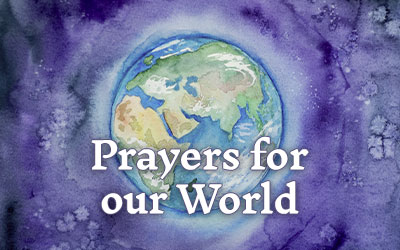Sudan in Trouble

Sudanese President Omar Hassan Bashir has practically declared war against South Sudan, the world's newest country, by stating that his main goal is now to "liberate" the southern people from their rulers, following recent border fighting.
The Heglig oil field, which is recognised by the international community as part of Sudan and was seized by the southerners this month, "will not be the end. The end will be in Juba," Bashir told a rally on Wednesday. He told the crowd that his message to South Sudan was: "Either we end up in Juba and take everything or you end up in Khartoum and take everything."
That clearly means, if Bashir acts accordingly, that it will be an open war between the Khartoum government in the north and the southern authorities based in Juba.
It is the peak of tensions between Khartoum and Juba since South Sudan became an independent state last July, after decades of a bitter civil war which killed two million people.
The Juba government says that it was forced to seize Heglig because the northerners had been using it as a base to launch attacks on South Sudan, which is ruled by the former rebel Sudan People's Liberation Movement.
Forces of the north and south have been fighting in several areas since South Sudan seceded from Sudan following a referendum held last year. The feud is essentially a creation of the British colonial power, which gave little regard to the sharp disparity between the Arab Muslim-dominated north and the mostly African south when it ended its rule of the area in the 1960s. The north-south conflict had been simmering since then, but it burst out into an open civil war in the mid-1980s. An internationally brokered agreement ended the fighting in 2005 and led to the 2011 referendum and creation of South Sudan.
However, Khartoum and Juba failed to agree on several key issues. These include transit fees Juba should pay Khartoum to use its oil pipeline, demarcation of the border, division of national debt, conflicting claims to the oil-producing area of Abyei in the south and the rights of citizens who after separation found themselves in a foreign country. It is estimated that there are 500,000 southerners in Sudan and 80,000 northerners in South Sudan. The two sides accuse each other of supporting rebel groups.
There is no longer any pretence of peace and any understanding between Bashir and South Sudan President Salva Kiir. Both sides are said to be building up their forces, including voluntary fighters, for a major clash in which Khartoum hopes to retake Heglig, which the southerners call Panthou.
There is an Israeli involvement in the conflict. Israel has been supplying weapons to the southerners since the start of their uprising, as admitted by Joseph Lagu, former leader of the rebel forces. Tel Aviv maintains close relations with South Sudan. Kiir paid a visit to Israel last year to cement the relationship.
An all-out war will be disastrous to both sides. Their oil-dependent economies cannot withstand a conflict. The Juba government had earlier shut off the oil wells that financed both governments. A few more weeks of closure of the northern pipeline, will wreck the south's only oil export route beyond salvation.
The currencies of both sides have all but collapsed. The two stand to suffer from hyperinflation and massive food deficits if they spend any large amount on war. The peoples of Sudan, both north and south, suffered enough but could face a worse situation.
Nobody seems to know how to go about finding a peaceful solution to the conflict.
(The writer is a prominent columnist. The article was published in Jordan Times on April 20, 2012.) This email address is being protected from spambots. You need JavaScript enabled to view it.
We know Someone who can bring true peace and healing of this worsening conflict. Please pray for the powers of division and darkness to be bound and overthrown so that the two next door neighbor nations can be reconciled and get along with each other.


